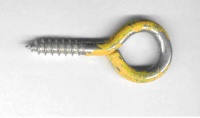Stage fixings: Difference between revisions
Jump to navigation
Jump to search
No edit summary |
No edit summary |
||
| (2 intermediate revisions by the same user not shown) | |||
| Line 1: | Line 1: | ||
Stage pins are used to hold pin [[hinges]] together. | Stage pins are used to hold loose pin [[hinges]] together. | ||
[[Image:Rsz_Pins.jpg|200px|thumb|left|stage pins]] | [[Image:Rsz_Pins.jpg|200px|thumb|left|stage pins]] | ||
| Line 115: | Line 115: | ||
Screw eyes are primarily used on flats as a fixing for the top of an adjustable stage brace | Screw eyes are primarily used on flats as an alternative to a [http://www.example.com brace cleat]. It is screwed into the flat and used as a fixing for the top hook of an adjustable stage brace. However they are also useful for various jobs on stage. | ||
[[Image:Screweye.jpg|200px|thumb|left|screw eye]] | [[Image:Screweye.jpg|200px|thumb|left|screw eye]] | ||
Latest revision as of 13:11, 11 September 2008
Stage pins are used to hold loose pin hinges together.
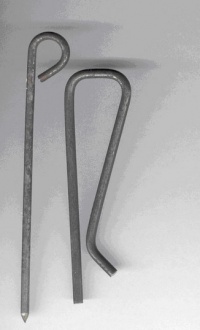
Stage screws are mainly used for fixing adjustable stage braces to the stage to make them more permanent. They are also used for attaching zip lines and metal hardware to the stage.
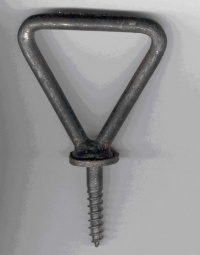
Set screws are similar to stage screws in look and use, except that they have to fit into a boss plate.
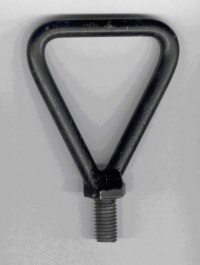
Boss plates are fitted to floors and scenery to take set screws and bolts.
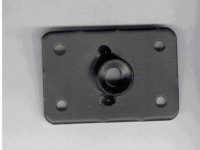
Screw eyes are primarily used on flats as an alternative to a brace cleat. It is screwed into the flat and used as a fixing for the top hook of an adjustable stage brace. However they are also useful for various jobs on stage.
